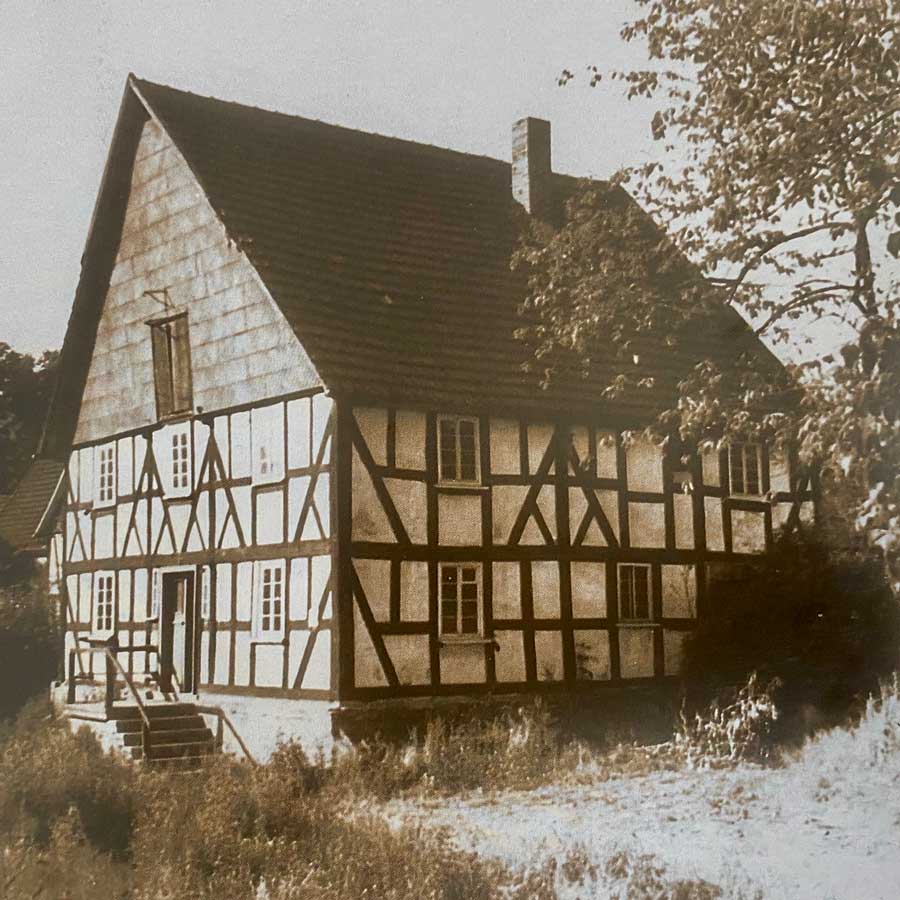The history of the Jews in Siegen and Siegerland until 1867

The first Jew known by name in the Siegerland region did not live in the city of Siegen but in the small village of Burgholdinghausen on the outermost edge of the principality of Nassau-Siegen. It was a merchant’s servant named Benjamin Moses, who came from Attendorn in Sauerland and was allowed to purchase a plot of land on the manor in 1797. This was only possible for him because Burgholdinghausen was an exclave: the village of seven houses belonged to the estates of the Baron zu Fürstenberg, who was sympathetic to the Jews as they were useful to him for his business connections. The cemetery, which Benjamin Moses established in 1804 after the death of his wife, is the oldest surviving Jewish burial place in Siegerland.
The Siegerland region of southern Westphalia is one of the regions in Germany where for centuries, Jews were not allowed to settle. The oldest documented mention of Jews in Siegen dates back to 1253, but the medieval Jewish community was probably erased during the plague pogroms of 1349/50. Until the Napoleonic period (around 1800), the Princely House of Nassau denied Jews the right of residence in Siegerland. Only when Jews were granted more rights and freedoms in the German provinces (under the influence of the French Revolution (1789) and the Enlightenment) was it possible for a Jewish family to settle in Siegen in 1815, for the first time since the Middle Ages. However, it took another three decades before the city granted them citizenship in 1843.
The beginning of significant Jewish life in Siegen can be traced back to 1867 when several Jewish families from the neighboring Sauerland and Wittgenstein moved to the growing industrial city. In 1884 they founded a congregation, which built a synagogue twenty years later (1904). However, the community, which usually numbered around a hundred members, did not last more than six decades: in February 1943, the last Siegen Jews were deported to National Socialist extermination camps. Before that, on November 10, 1938, Siegen SS and SA men had set fire to and destroyed the synagogue. Since 1945, only a few Jews have lived in Siegen.
These words are dedicated to those who died
because death is a punishment
because death is a reward
because death is the final rest
because death is eternal rage
These words are dedicated to those who died
Bashert
These words are dedicated to those who survived
because life is a wilderness and they were savage
because life is an awakening and they were alert
because life is flowering and they blossomed
because life is a struggle and they struggled
because life is a gift and they were free to accept it
These words are dedicated to those who survived
Bashert
EXCERPT FROM THE POEM „BASHERT“ BY IRENA KLEPFISZ


